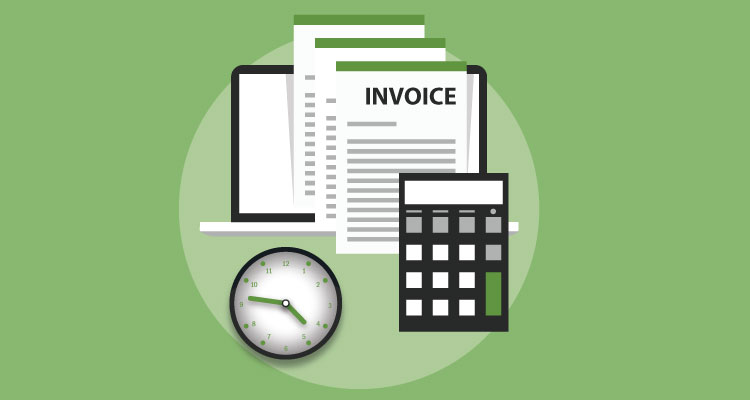I get asked all the time, what are your reasons to track your time? William Penn once said, “Time is what we want most, but what we use worst.” Not exactly correct English — but you know what’s being said.
As a business owner, it’s easy to relate to that statement. Before starting to track time, you can waste huge chunks of valuable time — maybe scrolling through my social media feeds and binge-watching Netflix. The result? You won’t be as productive, which means making less money.
However, small business owners and the average 9-to-5 person also struggle with time management.
Thankfully, there are numerous time tracking tools that can help get with solving this problem. Unfortunately, there are still a lot of people who haven’t taken advantage of these tools because they still think that time tracking is a waste-of-time.
Table of Contents
ToggleHere are 7 reasons to track your time.

1. Discover how you spend your days.
How many times have you looked at the clock only to ask, “Where did today go?” Well, by tracking your time, you can finally answer that age-old question with clear, direct accuracy.
By recording your daily routine for a week or so, you can determine when you’re most productive and identify the time-waster, such as social media, email, or blankly staring at the wall. When you eliminate extraneous interruptions and activities, you will be able to sort your tasks, and increase your productivity and focus on the tasks that are most important.

2. Allows you to identify areas that need improvement.
After you start tracking your time, you will be able to see the various areas where you need improvement. Seeing areas where you need improvement goes beyond eliminating those time wasters which were just mentioned.
For example, if you’re a graphic designer and you discover that you’re spending too much time on thumbnail logos, then you can determine what you believe is the appropriate amount of time you should be spending. It may be that you’re giving the client too many options. Instead of developing ten different options, offer only three or four and then make any changes from there.

3. Helps you bill correctly.
Would you rather prefer to be paid by the hour for your expertise or by a fixed rate for the finished product?
If you charge by the hour, then the client needs to know how many hours it will take it will take to finish the project. If you charge by the project, the client still needs to know how to calculate the amount of time it will take for you to complete the project as well. Time tracking previous projects can help you create more accurate estimates.
Remember, clients aren’t too keen on paying for work that they believe could have been done faster. Time tracking tools provide documentation that shows how exactly you spent your time on the project. This not only addresses any concerns that the client has regarding the invoice, it also puts an end to time theft, since you’re able to bill the client fairly — there is no guessing for those times and projects that you forgot to write down.

4. Forecast more accurately.
We’ve all been guilty of setting unrealistic deadlines and budgets for a new project. Here’s the thing, after you and your employees have tracked your time on a previous project from start to finish, you’ll have a basis for future projections. This allows you to create more accurate estimations on how much time and money a project is going to take, as well as set reasonable deadlines.
Having this knowledge readily available will also allow you to take-on new projects with confidence since you can be certain that projects won’t overlap nor will you or your employees get overwhelmed.
5. Forces you to single-task.
It’s been proven that we’re just not capable of multitasking. In fact, the entire concept of multitasking is a myth. Instead of doing several things at the same time, you’re actually cycling through these tasks quickly. This makes you more productive, and that alone is one of the great reasons to track your time.
“When you’re time-tracking, you’re aware that each increment of time — be it 15 minutes or an hour — is being logged. This means that you give each task its due time for the simple fact that you want to be able to log it accurately,” writes Jeremy Anderberg. “If you’re spending mere minutes on a variety of tasks, your log will be a mess. But there’s a certain pride that comes with being able to mark down a full hour or two on a single important item.”
Eventually, you’ll be able to grow and appreciate your ability to focus. There won’t be a need to multi-task. “You’ll learn to block off 30 or 60 minutes per day to these simple to-dos. You will get them all out of the way in one fell swoop.”

6. Creates a daily routine and habits.
Tracking your time gives you the opportunity to create daily routines and habits. This will ultimately help you battle procrastination and help you be able to get the most out of your time.
Daily routines and habits can also keep you healthy, happy, and productive. These routines can also improve your chances of becoming a successful “Unicorn,” like Mark Zuckerberg, Jack Dorsey, Drew Houston, and Julia Hartz.

7. Helps you achieve a healthy work-life balance.
Work-life balance is important to your personal health and productivity, along with the health and productivity of your family and community. It’s honestly one of the best reasons to track your time “After all, people need time and energy to participate in family life, democracy, and community activities,” says Shawn M. Burn, Ph.D. “They also need time outside of work for rejuvenation, and to develop and nurture friendships and their ‘non-work selves.’”
Once you’re tracked your time, you will notice that you now have free time. This equals time to spend with your friends or family. It allows you to do more things that you actually enjoy.
When you achieve a healthy work-life balance, you can remain healthy. Both mentally and physically. It helps you stay productive, motivated, and you will be much better able to avoid getting burned out.
















